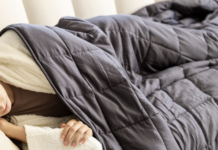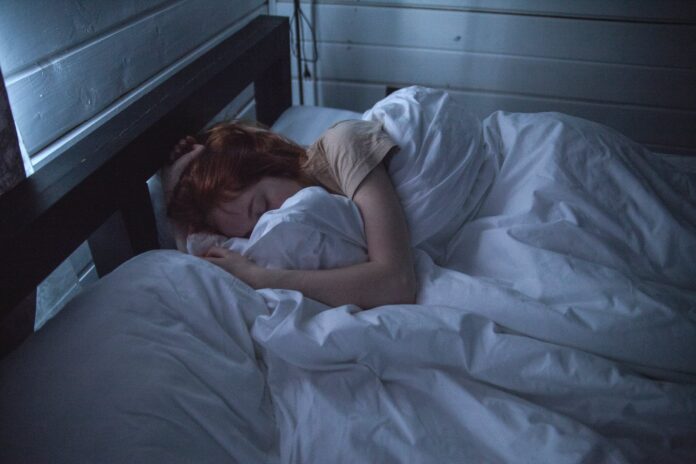Your physical, mental, and general well-being are all directly impacted by the quality of your sleep at night and how you feel during the day. Your level of productivity, emotional equilibrium, heart and brain health, immunity, creativity, vigor, and even weight are all impacted by sleep.
There isn’t another pastime that offers so many advantages with so little work!
However, surviving on fewer hours could seem like a sensible option when you’re struggling to fulfill the demands of a hectic schedule or just can’t sleep at night. However, even a small amount of sleep deprivation can have a significant negative impact on your energy, mood, focus, and capacity to manage stress. Furthermore, prolonged sleep loss can have a disastrous long-term effect on your physical and emotional well-being.
Your body doesn’t just shut down while you sleep. Your brain continues to function as you sleep, supervising biological upkeep that maintains your body functioning at its best and setting you up for the next day. You will not be able to work, learn, create, or communicate to the fullest extent of your abilities if you don’t get enough restorative sleep. If you consistently cut corners with “service,” you risk suffering a serious emotional and physical collapse.
The good news is that you don’t have to give up productivity for wellness. Your energy, productivity, and general health will improve if you take care of any sleep issues and schedule time for getting the rest you require every night. Actually, you’ll probably do a lot more during the day than if you were missing out on sleep and trying to work longer.
What are some myths about sleep?
Sleep Myth: Sleeping one hour less a night won’t have an impact on how well you operate during the day.
Sleep Fact: Even if you might not feel particularly drowsy throughout the day, missing even an hour of sleep can have an impact on your capacity for clear thinking and fast decision-making. It also impairs your vitality, resistance to infections, and cardiovascular health.
Sleep Myth: Getting more sleep at night might help you overcome issues with extreme weariness throughout the day.
Sleep Fact: While the quantity of sleep you receive is significant, what matters most is the quality of that sleep. Some people get eight or nine hours of sleep every night, but because of the poor quality of their sleep, they wake up feeling less rested.
Sleep Myth: Sleeping more on the weekends will help you make up for sleep lost during the week.
SleepFact: This sleep schedule won’t totally make up for sleep deprivation, even if it will help reduce it somewhat. Moreover, staying up late on the weekends might disrupt your sleep-wake cycle, making it more difficult to turn in for the night on Sunday and wake up early on Monday.
Sleep Myth: Your body adapts to altered sleep cycles with ease.
Sleep Fact: Most people can, at most, adjust their biological clock by one or two hours every day, and only then through cues that are timed correctly. As a result, adjusting to a new schedule that involves multiple time zones or a night shift at work may take longer than a week.
What kind of sleep do you need?
The quantity of sleep you require to perform at your best and what you can get by on varied significantly. The typical adult sleeps for less than seven hours every night. Six or seven hours of sleep can seem like a reasonable amount of time in today’s hectic world. However, in practice, it’s a surefire way to become chronically sleep deprived.
Even while you can function well on six or seven hours of sleep, there’s no doubt that you would feel much better and accomplish more if you slept in bed for an additional hour or two.
While everyone has slightly different sleep needs, most healthy adults require seven to nine hours of sleep per night in order to perform at their optimal level. Teens and children require considerably more. And although it’s commonly believed that as we age, we require less sleep, the majority of older adults still require seven hours or more. Taking naps during the day can help make up for the lack of sleep that older persons frequently experience at night.
Sleep requirements by age
The below table shows the hours of sleep need by age from newborn to 65+ years of age.
The best way to figure out if you’re meeting your sleep needs is to evaluate how you feel as you go about your day. If you’re logging enough sleep hours, you’ll feel energetic and alert all day long, from the moment you wake up until your regular bedtime.
| Age | Hours Needed |
| Newborn to 3 months old | 14 – 17 hrs |
| 4 to 11 months old | 12 – 15 hrs |
| 1 to 2 years old | 11 – 14 hrs |
| 3 to 5 years old | 10 – 13 hrs |
| 6 to 13 years old | 9 – 11 hrs |
| 14 to 17 years old | 8 – 10 hrs |
| Young adults (18 to 25 years old) | 7 – 9 hrs |
| Adults (26 to 64 years old) | 7 – 9 hrs |
| Older adults (65+) | 7 – 8 hrs |
Source: National Sleep Foundation
Why is deep sleep and REM sleep important?
The quality of your sleep matters more than the quantity of hours you spend in bed. If you allow adequate time for sleep but still struggle to fall asleep and wake up during the day, it’s possible that you’re not spending enough time in each stage of sleep.
Your sleep cycle comprises several stages, each of which has unique advantages. However, REM sleep, which improves mood and the mind, and deep sleep—during which the body repairs itself and stores energy for the next day—are especially crucial.
Avoiding nicotine and alcohol, as well as being startled by light or noise in the middle of the night, will help you sleep deeper. In addition to getting more REM sleep overall, you can try sleeping in the early hours of the morning, when REM sleep stages are longer.
What are some signs you’re not getting enough sleep?
You probably don’t have enough sleep if you don’t obtain the necessary amount of sleep each night. Furthermore, the extent to which sleep deprivation is harming you is probably unknown to you.
How can one be sleep deprived and not even realize it? Rather than crashing onto your plate at supper, the majority of symptoms of sleep deprivation are rather more subtle.
Moreover, in case you have developed a routine of squandering sleep, you might not even recall the sensation of being completely conscious, attentive, and functioning at maximum capacity. It may seem typical to feel drowsy during a tedious meeting, during the afternoon slump, or after supper, but in reality, these situations only qualify as “normal” when one is severely sleep deprived.
You might be deprived of sleep deprived if you experience any of the following:
- Press the snooze button too many times.
- Find it tough getting out of bed in the morning.
- Feel tired and weary in the afternoon.
- Feel the need to sleep a few extra hours on weekends.
- Fall asleep within five minutes of laying down in bed.
- Feel sleepy at work meetings, lectures, or warm rooms.
- Require an alarm in order to wake up.
- Need to take an afternoon nap to get through the day.
- Fall asleep while watching the television or relaxing on the couch.
How to get some extra sleep
Keep a regular sleep schedule. Try to go to bed and wake up at the same time every day, including on the weekends, to support your body’s natural clock.
If you want to address a specific sleep issue or modify your sleep habit, or if you just want to feel more productive and emotionally stable during the day, give these sleep approaches a try. Try a handful of the tips below and determine which ones improve your quality of sleep at night.
Take away any medical justifications for your sleep problems. A sleep disturbance may indicate an unfavorable pharmacological reaction, psychological issue, or medical illness.
Maintain a consistent sleep routine. To help your body’s natural clock, try to go to bed and wake up at the same time every day, even on the weekends.
Exercise on a regular basis. Numerous sleep disorders and issues might have their symptoms improved by regular exercise. On most days, try to get in at least 30 minutes of exercise—just avoid doing so right before bed. Find out how to start an exercise routine and stick to it.
Lower your caffeine intake. Too many flat white during the day may leave you feeling a little too amped up later in the day. It is possible that your coffee drinking may be causing anxiety and lack of sleep.
Think twice before you eat or drink. In addition to eating large meals or consuming a lot of fluids too close to bedtime, caffeine, alcohol, and sugary foods can all interfere with your ability to sleep.
Seek assistance in managing stress. Learning how to manage stress in a productive way can help you sleep better at night if the stress of managing job, family, or school is keeping you up at night.
Make your sleeping environment better. Make sure your bedroom is cold, quiet, and dark, and only use your bed for sleeping and having sex.
Establish a calming evening ritual. Steer clear of work, screens, and tense talks after midnight. Rather, unwind and soothe your thoughts by reading in a dimly lit room, having a warm bath, or using a relaxation technique to get ready for bed. There are many teas to help with sleep and anxiety that could be part of your routine.
Delay worrying. If you wake up in the middle of the night fretting about anything, write it down quickly and wait to worry about it until the following day when it will be simpler to handle.
Hopefully some of the above advice will let you know if you are getting enough sleep.
If you feel that you are struggling to sleep beyond your own control, we recommend visiting a professional.






























